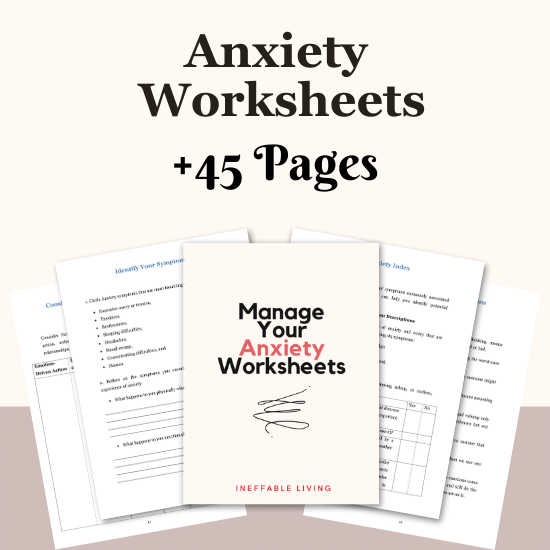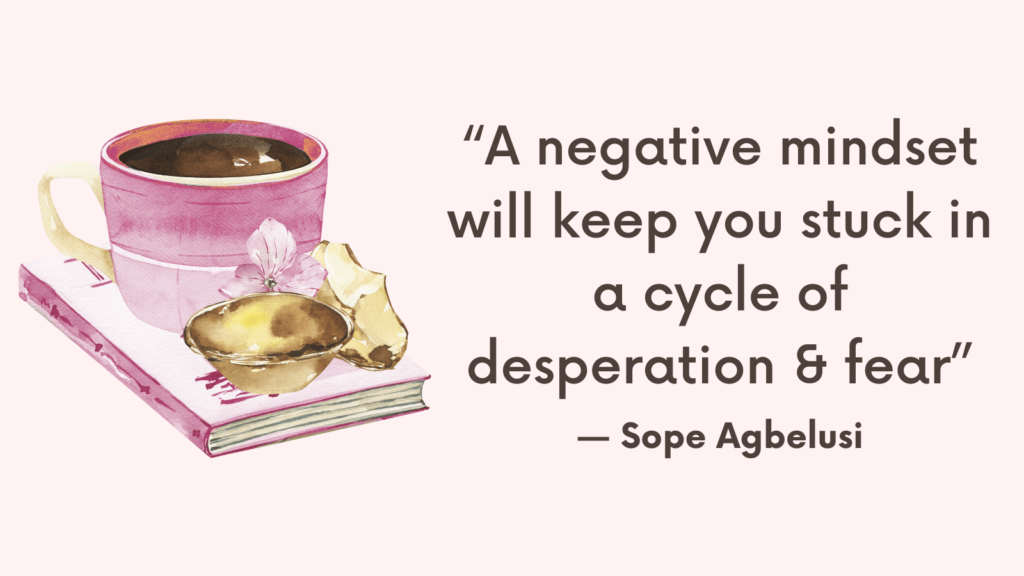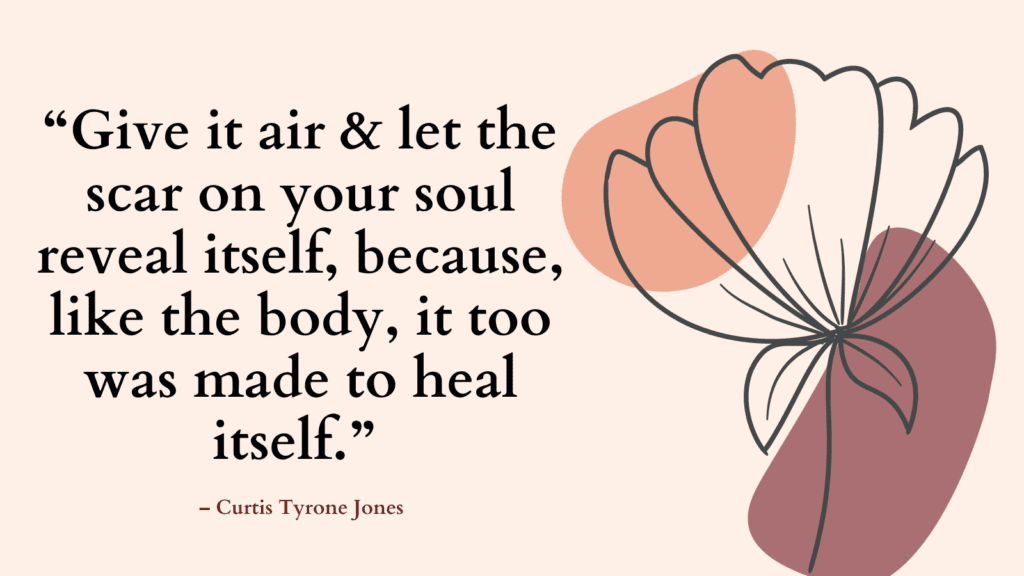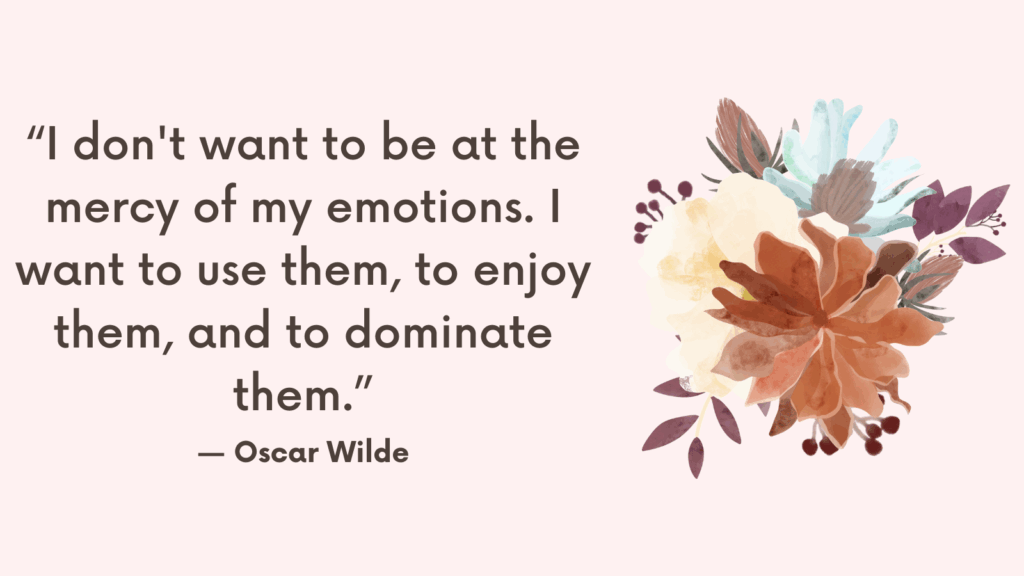This post contains signs you are recovering from anxiety.
8 Signs You Are Recovering From Anxiety
Recovering from anxiety is a deeply personal journey that varies from person to person.
However, there are common signs and milestones that indicate progress in managing and overcoming anxiety.
1. Improved Physical Health
Anxiety can manifest physically in various ways, including chronic tension, headaches, gastrointestinal issues, and disrupted sleep patterns. A sign of recovery is noticing improvements in these physical symptoms.
– Decreased Muscle Tension: You may notice your body feels more relaxed and less prone to tension-related pain.
– Improved Sleep Patterns: Falling asleep becomes easier, and your sleep is more restorative.
– Stabilized Energy Levels: With better sleep and less physical tension, energy levels throughout the day become more consistent.
Related: Top 10 Practical CBT Exercises For Generalized Anxiety Disorder Relief
2. Enhanced Emotional Regulation
Learning to manage emotions effectively is a crucial aspect of anxiety recovery.
– Reduced Frequency of Panic Attacks: Episodes become less frequent and less intense.
– Increased Tolerance to Triggers: Situations that once caused significant distress now evoke a more manageable response.
– Enhanced Mood Stability: Fewer mood swings and a generally more positive outlook on life.
3. Improved Cognitive Functioning
Anxiety can cloud thinking, affecting concentration, memory, and decision-making. Signs of recovery include:
– Better Concentration and Focus: Ability to concentrate on tasks without persistent anxious thoughts interrupting.
– Clearer Thinking: Decision-making becomes easier, and thoughts are less dominated by worry.
– Improved Memory: With reduced anxiety, your short-term and long-term memory can improve.
Related: High Functioning Anxiety Test (& How To Support Anxiety Recovery)
4. Healthier Coping Mechanisms
Adopting healthier strategies to cope with stress and anxiety is a clear indicator of recovery.
– Proactive Stress Management: Engaging in regular exercise, meditation, or hobbies that reduce stress.
– Seeking Support When Needed: More likely to reach out to friends, family, or professionals before situations become overwhelming.
– Avoiding Harmful Coping Strategies: Less reliance on substances or other harmful behaviors to manage anxiety.
5. Increased Self-Confidence and Self-Esteem
Recovery often brings a renewed sense of self-worth and confidence.
– Willingness to Take on Challenges: More open to new experiences, viewing them as opportunities for growth rather than threats.
– Positive Self-Talk: Replacing critical or fearful internal monologues with supportive and encouraging thoughts.
– Recognition of Personal Strength: Acknowledging your resilience and ability to cope with challenges.
Related: Top 7 Signs of High-Functioning Anxiety (+FREE Worksheets)
6. Enhanced Social Connections
Anxiety can lead to isolation, but recovery often includes a revitalized social life.
– Increased Social Engagement: Participating in social activities without overwhelming anxiety.
– Improved Relationships: More open and effective communication with friends and family.
– Willingness to Trust Others: Opening up about feelings and experiences, allowing for deeper connections.
7. Greater Enjoyment in Life
A significant sign of recovery is finding joy in activities and experiences once overshadowed by anxiety.
– Reengagement with Hobbies: Rediscovering old interests or exploring new ones without anxiety holding you back.
– Appreciation for Small Moments: Noticing and enjoying simple pleasures in daily life.
– Future Planning: Looking forward to the future with optimism rather than dread.
Related: 30 Day Social Anxiety Challenge That Will Help You Feel More Confident
8. Mindfulness and Presence
Developing a practice of mindfulness is a common aspect of anxiety recovery.
– Living in the Moment: Less preoccupation with past regrets or future worries.
– Mindful Awareness: Noticing thoughts and feelings without immediate reaction or judgment.
– Embracing Uncertainty: Comfort with not having all the answers and accepting the unpredictability of life.

Lifestyle Changes to Support Your Recovery from Anxiety
Recovering from anxiety requires more than quick fixes — it involves creating a daily life that calms your nervous system and supports mental clarity. These simple lifestyle changes, when practiced consistently, can reduce anxiety over time and help you feel more balanced.
1. Get Consistent Sleep
Aim for 7–9 hours of sleep each night. Go to bed and wake up at the same time daily, avoid screens before bed, and create a quiet, cool sleep environment to support deep rest.
2. Move Your Body Every Day
Physical activity helps reduce anxiety by releasing calming chemicals in the brain. Walk, stretch, dance, or do yoga for at least 15–30 minutes each day.
3. Cut Down on Stimulants
Too much caffeine, sugar, or nicotine can worsen anxiety. Slowly reduce your intake and notice how your body and mind respond with fewer jitters and calmer energy.
4. Eat Balanced, Nourishing Meals
Eat regularly to keep your blood sugar stable. Focus on whole foods—like vegetables, lean protein, whole grains, and healthy fats—and avoid skipping meals.
5. Create a Calm Morning Routine
Start your day without rushing. Try simple activities like stretching, deep breathing, journaling, or having breakfast away from your phone to reduce early anxiety.
Related: 30 Coping Skills for Anxiety and Depression
6. Limit Overstimulation
Too much noise, multitasking, or screen time can overload your mind. Take short breaks throughout the day to unplug, rest your senses, and reset.
7. Set Boundaries to Protect Your Energy
Don’t take on more than you can handle. Say no when needed, take breaks from draining conversations, and avoid overcommitting to protect your mental space.
8. Practice Mindfulness
Spend a few minutes each day being fully present. Try deep breathing, noticing your surroundings, or using a mindfulness app to train your mind to stay grounded.
9. Reduce Clutter in Your Space
A messy space can increase stress. Tidy one small area at a time to create a calm, organized environment that supports mental clarity.
10. Build a Support System
Talk to people who listen without judgment. Staying connected to safe, supportive relationships can ease anxious thoughts and help you feel less alone.
Each of these changes may seem small, but together they can create a daily rhythm that supports calm, clarity, and emotional strength.
Related: How to Relieve Anxiety With 2 Words?
Conclusion
Recovering from anxiety is a gradual process marked by significant changes in physical health, emotional regulation, cognitive functioning, coping mechanisms, self-esteem, social connections, enjoyment of life, and mindfulness.
Recognizing these signs in yourself can be affirming and encourage continued progress.



